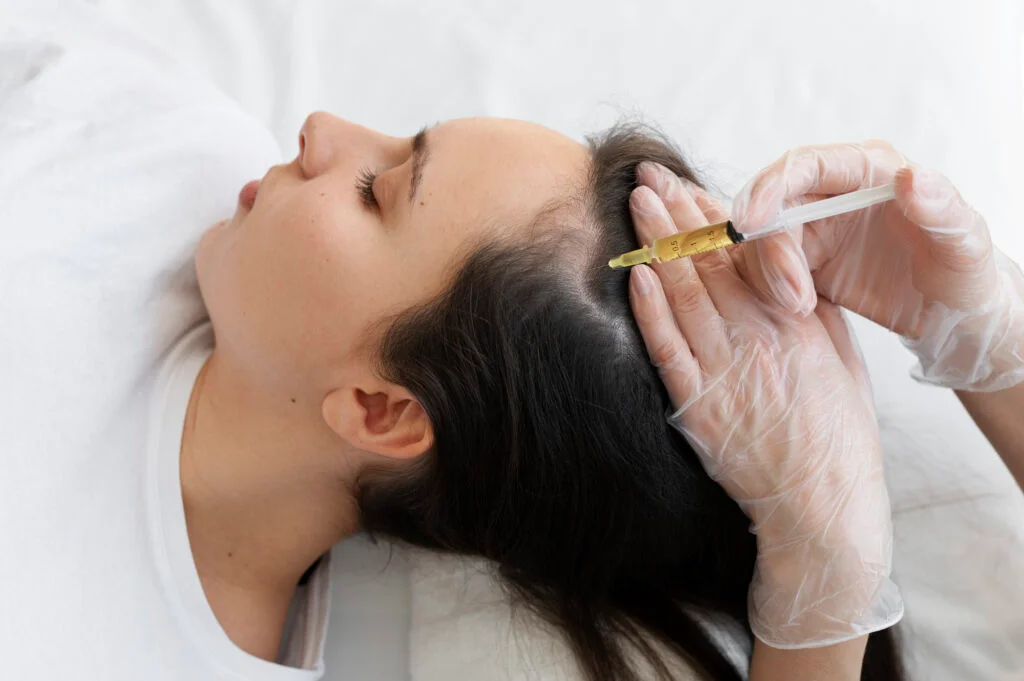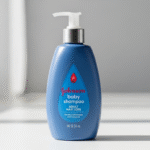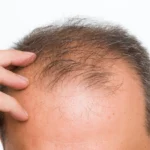Summary : Hair loss after miscarriage is a common but overlooked experience caused by hormonal shifts, stress, and nutritional changes. This guide explains why it happens, how long it lasts, recovery timelines of Miscarriage and Hair Loss, medical advice, and expert-backed tips to support regrowth. You’ll also learn when to see a doctor, what treatments …
Summary :
Hair loss after miscarriage is a common but overlooked experience caused by hormonal shifts, stress, and nutritional changes. This guide explains why it happens, how long it lasts, recovery timelines of Miscarriage and Hair Loss, medical advice, and expert-backed tips to support regrowth. You’ll also learn when to see a doctor, what treatments may help, and how to rebuild confidence during recovery.
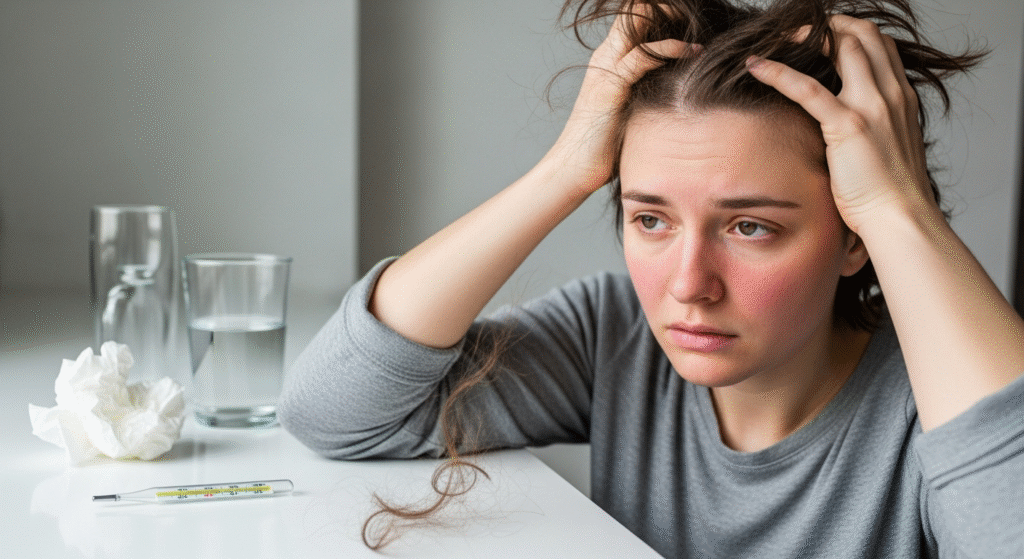
Table of Contents
Introduction
You’re grieving deeply and now facing another challenge: your hair is shedding. Miscarriage and hair loss often go hand in hand due to sudden hormonal changes, stress, and nutritional shifts. In this guide, you’ll learn why hair loss occurs after miscarriage, how long recovery takes, and proven ways to support healthy regrowth. With expert insight, practical tips, and emotional reassurance, we’ll help you navigate this sensitive journey with clarity and hope.
Why Hair Loss Happens After a Miscarriage
The Biology of the Hair Growth Cycle
Hair naturally goes through phases: anagen (growth), catagen (transition), telogen (resting), and exogen (shedding). After pregnancy, hormone changes can push a higher percentage of hairs into the telogen phase, resulting in more shedding than usual.
Telogen Effluvium Explained
The most common type of hair loss after miscarriage is telogen effluvium. It occurs when a sudden physical or emotional stressor triggers large numbers of hairs to enter the shedding stage. This is temporary but can be distressing.
Hormonal Shifts
During pregnancy, high estrogen levels keep hair in the growth phase. After miscarriage, these hormone levels drop quickly, leading to sudden shedding. According to dermatologists, this pattern is almost identical to postpartum hair loss but may occur earlier.
Stress and Emotional Trauma
Emotional trauma from pregnancy loss increases cortisol levels, which can disrupt the normal hair cycle. Chronic stress also worsens hair fall and delays regrowth.
Nutritional Deficiencies
Blood loss, reduced appetite, or poor nutrition during recovery can deplete key nutrients such as iron, zinc, vitamin D, and protein, all of which are essential for strong, healthy hair.
Timeline: When Hair Loss Starts and When Regrowth Begins
Latency Period
Hair loss may not appear immediately. Most women notice shedding 6–12 weeks after miscarriage due to the delayed response of the hair cycle.
Peak Shedding
The most intense shedding phase usually occurs around 3–4 months post-miscarriage.
Early Regrowth Signs
By 4–6 months, many women notice fine “baby hairs” along the hairline, a sign that regrowth has begun.
Full Recovery Expectations
Most women see noticeable improvement within 6–12 months, although recovery varies by age, health, and stress levels.
Individual Variations
Factors such as thyroid health, iron levels, and emotional well-being can influence how quickly your hair recovers.
Types & Patterns of Hair Loss After Pregnancy Loss
Diffuse Shedding
Hair falls evenly across the scalp — the most typical pattern.
Alopecia Areata
Stress-related immune responses may cause patchy bald spots.
Trichotillomania
Some women cope with grief by unconsciously pulling their hair, worsening hair thinning.
Chronic Telogen Effluvium
If shedding lasts longer than 6 months, it may indicate an ongoing condition requiring medical evaluation.
Pattern Hair Loss
Sometimes miscarriage-related shedding overlaps with androgenetic alopecia (genetic thinning), leading to more pronounced hair loss.
How to Support Hair Regrowth After Miscarriage
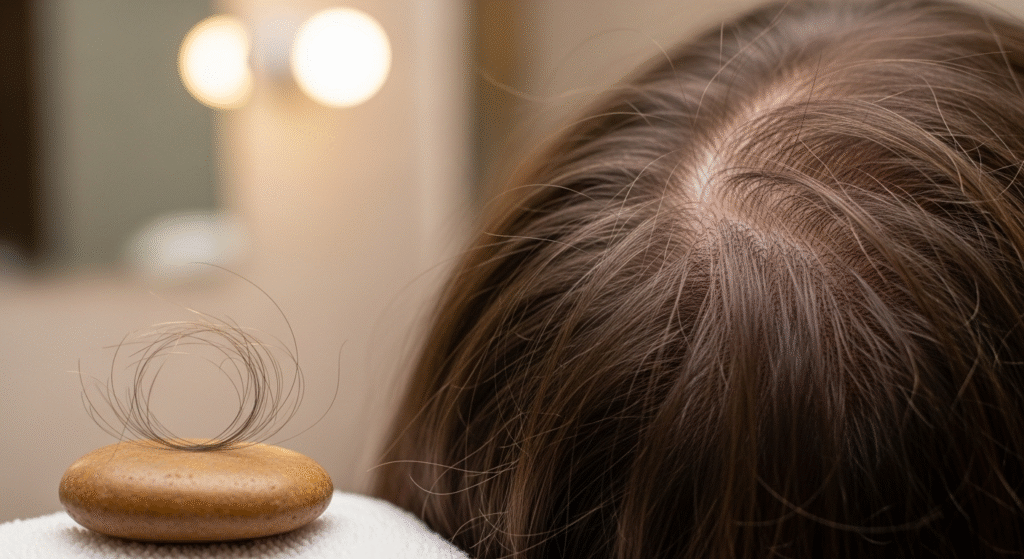
Nutrition & Supplementation
- Iron-rich foods: spinach, red meat, lentils
- Protein sources: eggs, fish, beans
- Vitamins D & B-complex: sunlight exposure, fortified foods, leafy greens
- Zinc & Omega-3s: nuts, seeds, oily fish
Pro Tip: Always consult a doctor before starting supplements to avoid overdosing.
Gentle Hair Care Practices
- Use mild shampoos free from harsh chemicals.
- Avoid tight hairstyles, hot tools, and chemical treatments.
- Practice scalp massage to stimulate blood flow.
Stress Management & Emotional Healing
- Join a support group for women experiencing pregnancy loss.
- Practice mindfulness, yoga, or journaling.
- Consider therapy to process grief in a healthy way.
Lifestyle Adjustments
- Maintain hydration and a balanced diet.
- Get 7–8 hours of sleep for hormone balance.
- Avoid smoking and excessive caffeine.
Advanced Options (if medically cleared)
- Topical minoxidil may help in some cases.
- PRP therapy or microneedling can stimulate follicles.
- Low-level laser therapy devices may encourage regrowth.
When to See a Doctor — Diagnostics & Red Flags
Warning Signs
- Sudden clumps of hair falling out
- Patchy bald spots instead of diffuse thinning
- Hair loss lasting longer than 6 months
Recommended Lab Tests
- Iron / ferritin panel
- Thyroid tests (TSH, T3, T4)
- Hormone profile
- Vitamin D & B12 levels
Differential Diagnosis
Hair loss after miscarriage can mimic thyroid disease, lupus, or genetic hair thinning. A doctor can rule these out.
Role of Specialists
Dermatologists or trichologists may suggest tailored treatments like medicated shampoos, supplements, or advanced therapies.
FAQs
Is hair loss after miscarriage normal?
Yes, it’s a common response to hormonal changes and stress.
How long does shedding last?
Usually 3–6 months, with regrowth visible by 6–12 months.
Will my hair grow back fully?
In most cases, yes. If not, consult a dermatologist.
Can I prevent hair loss after miscarriage?
You can’t fully prevent it, but nutrition, gentle care, and stress management help reduce severity.
Are there safe treatments post-miscarriage?
Yes, but consult your doctor before starting supplements or topical treatments.
Conclusion
Hair loss after miscarriage can be emotionally challenging, but it is usually temporary and reversible. Most women see regrowth within a year when supported by nutrition, gentle care, and medical advice. If shedding feels overwhelming, remember that professional help is available, and you don’t have to face this journey alone.
Ready To Take Your next Step
If you’re experiencing miscarriage and hair loss, know that you are not alone — and recovery is possible. For personalized guidance, book a consultation with Dr. Uzma Irfan in Islamabad to explore safe treatments, nutrition advice, and professional care tailored to your recovery journey.

